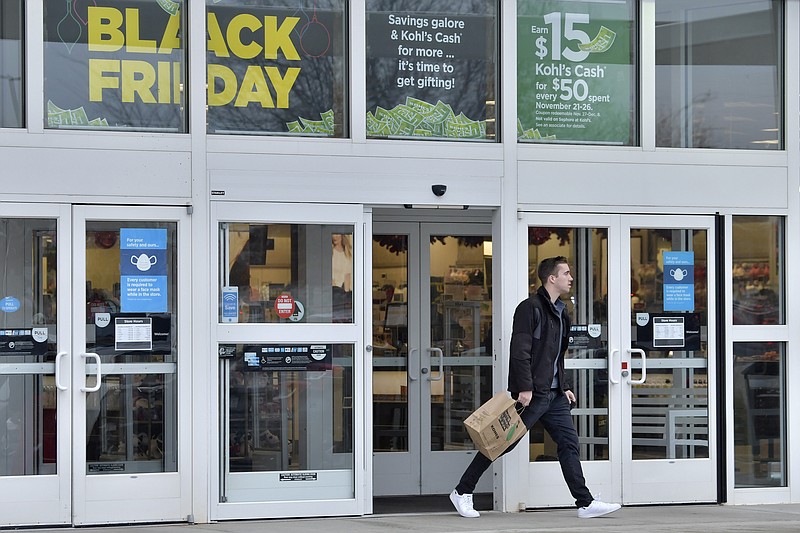WASHINGTON -- U.S. consumer confidence fell to a nine-month low in November, clipped by rising prices and concern about the coronavirus.
The Conference Board reported Tuesday that its consumer confidence index dropped to a reading of 109.5, down from 111.6 in October. It was the lowest reading since the index stood at 95.2 in February.
A baseline value of 100 was set in 1985.
The survey was completed on Nov. 19 and does not include the ramifications of omicron, a new variant of the coronavirus that has begun to spread with few solid answers about the damage it might do to the U.S. and global economies.
"Expectations about short-term growth prospects ticked up, but job and income prospects ticked down," Lynn Franco, senior director of economic indicators at the Conference Board, said in a statement. "Concerns about rising prices -- and, to a lesser degree, the delta variant -- were the primary drivers of the slight decline in confidence."
Even before the omicron variant appeared, consumer optimism was being tested by price spikes across the board, particularly for gasoline and food.
The Conference Board's present situation index, which measures consumers' assessment of current business and labor conditions, fell to 142.5, down from 145.5 in October.
The expectations index, based on consumers' outlook for income, business and labor market conditions, fell to 87.6 in November from 89.0 in October. Fewer Americans also said they were planning to purchase homes, cars and major appliances over the same time period.
The Conference Board said concerns about rising prices and to a lesser degree, lingering worries about the delta variant, were the primary drivers of the November decline.
Bolstered by solid job growth, robust wage gains and record-high stock prices, consumer sentiment is well-above levels seen earlier in the pandemic. However, a resurgence in covid-19 cases and the fastest inflation in decades has hampered a sustained recovery in Americans' confidence.
"Both confidence and spending will likely face headwinds from rising prices and a potential resurgence of covid-19 in the coming months," Franco said.
Nancy Vanden Houten, lead U.S. economist at Oxford Economics, said she expects the omicron variant to have only a "moderate negative impact on growth." She is looking for the overall economy, as measured by the gross domestic product, to expand at an annual rate of 7.9% in the current quarter ending in December, a big improvement from the lackluster 2.1% gross domestic product gain in the July-September quarter.
The decline in the Conference Board confidence index followed an even bigger drop reported last week in the University of Michigan's gauge of consumer sentiment, which fell in November to a decade-low of 7.4, compared to a final October reading of 71.7.
The smaller decline in the Conference Board survey reflects the fact that this index places more emphasis on the labor market, which has been performing well this year.
Information for this article was contributed by Martin Crutsinger of The Associated Press and by Reade Pickert of Bloomberg (WPNS).
